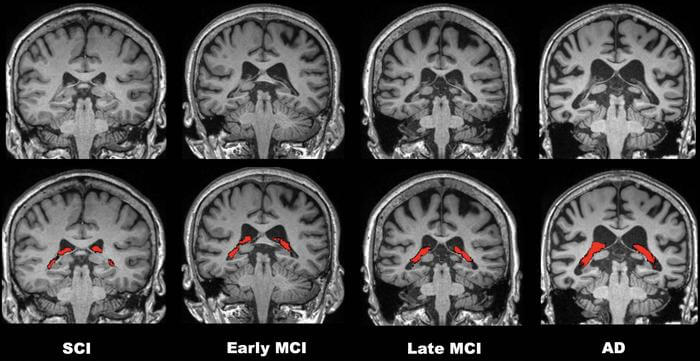Summary: The International Working Group, comprising 46 experts from 17 countries, has released new recommendations for diagnosing Alzheimer’s disease. Their guidelines emphasize that diagnosis should combine both clinical symptoms and biological markers, pushing back against a purely biological definition. This approach aims to prevent potentially harmful early labeling of people who may never develop symptoms.
Journal: Journal of the American Medical Association – Neurology (JAMA Neurology), November 1, 2024, DOI: 10.1001/jamaneurol.2024.3770
Reading time: 5 minutes
A New Approach to Diagnosis
The way doctors diagnose Alzheimer’s disease is about to change. An international team of experts has published new guidelines that could significantly impact how patients are diagnosed and when they receive treatment.
Professor Dubois explains: “These recommendations are the collaborative effort of 46 international experts who emphasise that diagnosing Alzheimer’s disease should primarily rely on clinical evaluation supported by biomarkers. Importantly, we are distinguishing between two groups: those who show typical Alzheimer’s symptoms and have positive biomarkers are diagnosed with the disease, while those who have positive biomarkers but no typical Alzheimer’s symptoms are considered at risk. This distinction is crucial as it paves the way for more targeted research, risk assessment, and the development of personalised treatments for those at risk.”
Protecting Patients from Premature Diagnosis
A key concern driving these new recommendations is protecting people from unnecessary psychological harm. Dr. Nicolas Villain noted: “As our understanding of Alzheimer’s disease evolves, the advancements in biomarkers are allowing for earlier diagnosis, even before symptoms appear. However, it’s crucial to emphasise that our main focus should be on the potential future risks of cognitive decline associated with these biomarkers, rather than just the biological changes themselves.”
This cautious approach is especially important as new blood tests for Alzheimer’s become more widely available. The experts warn against testing people who don’t have symptoms, as a positive test result could cause unnecessary distress when many may never develop the disease.
Looking to the Future
The new recommendations also emphasize the importance of prevention and risk reduction. Professor Frisoni commented: “Further developing brain health services for the prevention of dementia could lead to better evaluation of risk, communication of risk and risk reduction strategies targeting modifiable risk factors.”
Technical Terms Glossary
Biomarkers: Biological indicators that can be measured to detect the presence of disease, such as specific proteins in blood or brain scans.
Prodromal Stage: An early stage of disease when mild symptoms first appear but before major symptoms develop.
Clinical-biological Entity: A disease definition that requires both clinical symptoms and biological evidence for diagnosis.
Presymptomatic: A stage where biological signs of disease are present but no symptoms have appeared yet.
Test Your Knowledge
1. According to the new guidelines, what two elements are required for an Alzheimer’s diagnosis?
Answer: Clinical symptoms and positive biomarkers
2. What should people with positive biomarkers but no symptoms be called?
Answer: “At risk for Alzheimer’s disease” rather than diagnosed with the disease
3. How many countries were represented in the International Working Group?
Answer: 17 countries
4. What is emphasized as important for prevention of dementia?
Answer: Developing brain health services for risk evaluation, communication, and reduction strategies
Enjoy this story? Get our newsletter! https://scienceblog.substack.com/


